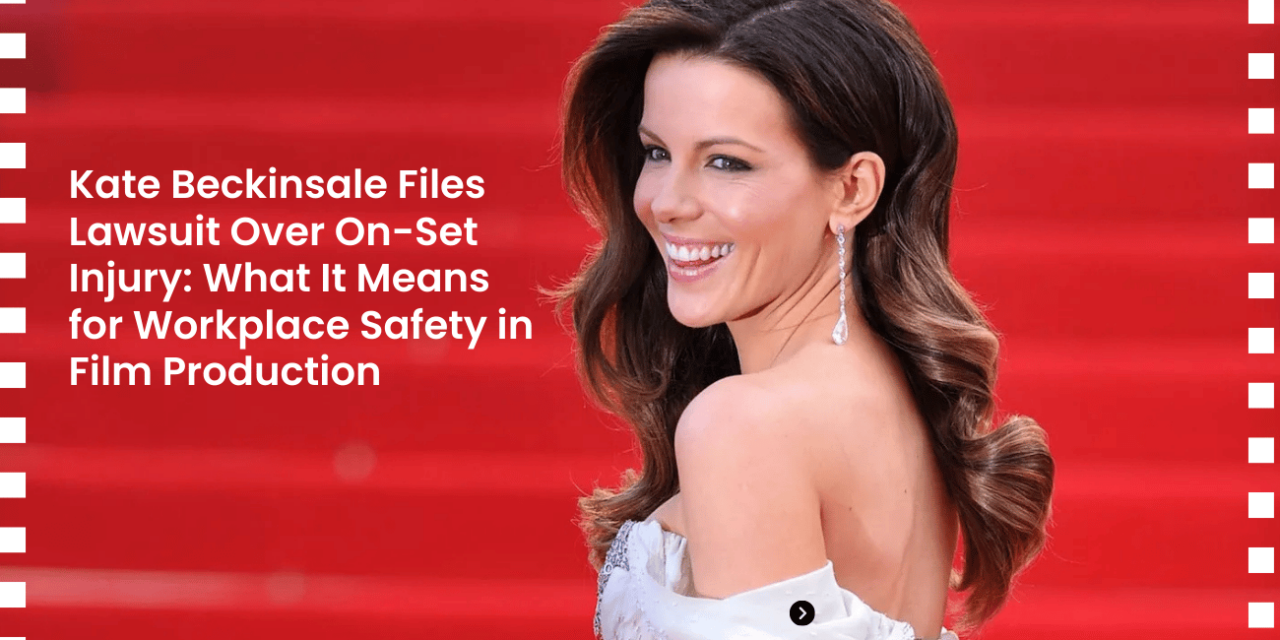Hollywood star Kate Beckinsale has filed a personal injury lawsuit against the producers of her upcoming film Canary Black. The actress alleges she suffered a serious knee injury while performing stunts during filming and was pressured to continue working despite her condition.
This case is more than celebrity news—it highlights important legal questions around workplace safety, employer responsibility, and injury liability that extend far beyond the film industry.
What Happened on Set
According to Beckinsale’s lawsuit, she was asked to perform physically demanding stunt work on set. During filming, she injured her knee but claims production staff did not provide proper medical care or accommodations. Instead, she says she was pressured to keep working, aggravating her injury and causing long-term damage.
While stunt injuries aren’t uncommon in Hollywood, the claim that producers allegedly ignored safety obligations brings legal accountability into focus.
Employer Duty of Care in the Workplace
Just like any other employer, film studios and production companies owe a duty of care to their employees and contractors. That includes:
-
Providing a safe work environment
-
Ensuring proper training and safety protocols
-
Offering reasonable accommodations when injuries occur
-
Allowing recovery time instead of forcing employees to work injured
Failure to meet these obligations may be considered negligence—opening the door to personal injury claims or even wrongful workplace practice lawsuits.
Legal Implications of Beckinsale’s Case
Beckinsale’s case raises questions many workers face in less glamorous industries:
-
Can an employer pressure an injured worker to keep working?
-
What happens if injuries worsen because proper care wasn’t provided?
-
What compensation can victims seek?
If negligence is proven, Beckinsale could pursue damages for:
-
Medical bills and ongoing treatment
-
Lost income if her career opportunities were impacted
-
Pain and suffering
-
Possible punitive damages if willful negligence is shown
This lawsuit could also encourage greater oversight in Hollywood—and beyond—on workplace safety standards.
Why This Matters Beyond Hollywood
While the case involves a celebrity, it reflects a common workplace injury issue. Many injured workers in industries like construction, healthcare, and manufacturing also face pressure to “push through” injuries.
The law is clear: employers cannot ignore safety or force injured employees to work against medical advice. Workers’ compensation, personal injury lawsuits, and negligence claims exist to hold companies accountable.
What to Do If You’re Injured at Work
If you suffer a workplace injury:
-
Seek immediate medical attention—your health comes first.
-
Report the injury to your employer and request documentation.
-
Document the circumstances with photos, witness names, and medical records.
-
Avoid signing settlements or waivers until you’ve consulted an attorney.
-
Contact an experienced workplace injury lawyer to protect your rights.
Protecting Workers’ Rights – Contact Pisanchyn Law Firm
No worker—celebrity or not—should have to choose between their health and their job. When employers or companies ignore safety, they must be held accountable.
At the Pisanchyn Law Firm, we fight for injury victims and their families, ensuring they get the medical care and financial compensation they deserve. If you or a loved one has been injured on the job, contact us today for a free consultation.





